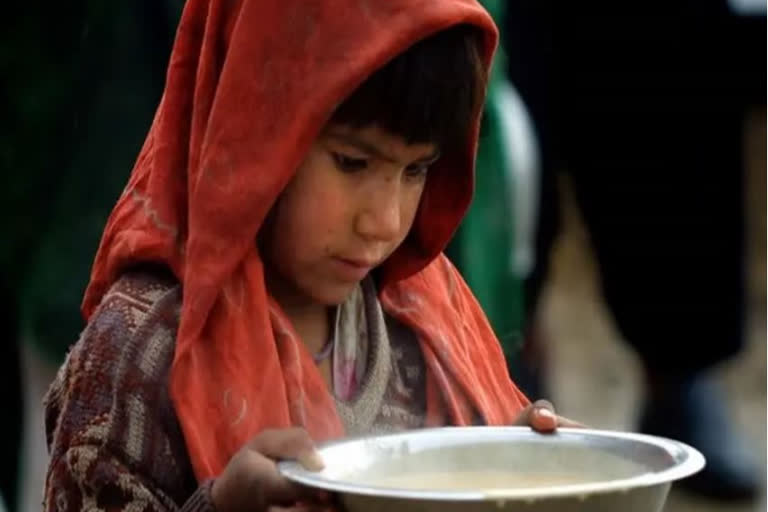New Delhi: The centre on Wednesday told the Rajya Sabha that the Global Hunger Index (GHI) does not reflect India's true picture as it is a flawed measure of 'Hunger'. The statement was filed by Minister of Women and Child Welfare Smriti Irani in a written response to a question raised by Congress MP Mallikarjun Kharge, highlighting that the GHI has fallen down and was ranked 107 out of 121 countries this year.
Calling the situation 'precarious', Kharge inquired about the measures taken by the government to reverse the situation, further asking whether or not the government has achieved the target of a Malnutrition free India.
"As per Global Hunger Index 2022 released by Concern Worldwide and Welthungerhilfe, India stands at rank 107 out of 121 countries with a score of 29.1. India stood at rank 101 out of 116 countries with a score of 27.5 on the Global Hunger Index 2021," the statement by Irani stated.
"It (GHI) should not be taken at face value as it is neither appropriate nor representative of hunger prevalent in a country. Out of its four indicators, only one indicator, i.e., undernourishment, is directly related to hunger. The two indicators, namely, Stunting and Wasting are outcomes of complex interactions of various other factors like sanitation, genetics, environment and utilisation of food intake," it said.
Also read: No Data available on 'Hate Crimes' in India: Union Home Ministry tells RS
"Hunger is taken as the causative/outcome factor for stunting and wasting in the GHI. Also, there is hardly any evidence that the fourth indicator, namely child mortality, is an outcome of hunger," it further clarified.
The government has accorded high priority to the issue of malnutrition and is making serious efforts to address this issue. The efforts under the Supplementary Nutrition Programme under Anganwadi Services and POSHAN Abhiyaan have been rejuvenated and converged as ‘Saksham Anganwadi and POSHAN 2.0’ (Mission Poshan 2.0). It seeks to address the challenges of malnutrition in children, adolescent girls, pregnant women and lactating mothers through a strategic shift in nutrition content and delivery, the statement added.
Irani's statement further claims that the government released Streamlined Guidelines dated in January 2021 for greater transparency, accountability and quality in the nutrition support programme and service delivery. These guidelines emphasize ensuring the quality of supplementary nutrition, highlighting roles and responsibilities of duty holders, IT-enabled data management and monitoring, leveraging of traditional knowledge through AYUSH, procurement and convergence for achieving good nutritional outcomes.



